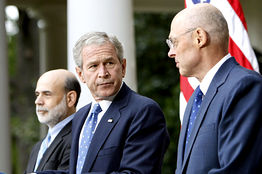 Every year I attend a conference called the Workshop on Economics of Information Security (WEIS), and every year I learn quite a bit from the experience. This year was no exception. The conference represents an interdisciplinary approach to Cybersecurity that includes economists, government researchers, industry, and of course computer scientists. Run by friend and luminary Bruce Schneier, Professor Ross Anderson from Cambridge University, and this year with chairs Drs. Tyler Moore and Allan Friedman, the conference includes an eclectic mix of work on topics such as the cyber-insurance (usually including papers from field leader Professor Rainer Böhme, soon of University of Münster), privacy protection, user behavior, and understanding of the underground economy, this year’s conference had a number of interesting pieces of work. Here are a few samples:
Every year I attend a conference called the Workshop on Economics of Information Security (WEIS), and every year I learn quite a bit from the experience. This year was no exception. The conference represents an interdisciplinary approach to Cybersecurity that includes economists, government researchers, industry, and of course computer scientists. Run by friend and luminary Bruce Schneier, Professor Ross Anderson from Cambridge University, and this year with chairs Drs. Tyler Moore and Allan Friedman, the conference includes an eclectic mix of work on topics such as the cyber-insurance (usually including papers from field leader Professor Rainer Böhme, soon of University of Münster), privacy protection, user behavior, and understanding of the underground economy, this year’s conference had a number of interesting pieces of work. Here are a few samples:
- Guns, Privacy, and Crime, by Allesandro Acquisti (CMU) and Catherine Tucker (MIT), provides an insight into how addresses of gun permit applicants posted on a Tennessee website does not really impact their security one way or another, contrary to arguments made by politicians.
- Is the Internet for Porn? An Insight Into the Online Adult Industry – Gilbert Wondracek, Thorsten Holz, Christian Platzer, Engin Kirda and Christopher Kruegel provides a detailed explanation of the technology used to support the Internet Porn industry, in which it claims provides over $3,000 a second in revenue.
- The password thicket: technical and market failures in human authentication on the web – Joseph Bonneau and Sören Preibusch (Cambridge) talks about just how poorly many websites manage all of those passwords we reuse.
- A panel on the credit card payment system, together with a presentation that demonstrated that even credit cards with chips and pins are not secure. One of the key messages from the presentation was that open standards are critically important to security.
- On the Security Economics of Electricity Metering – Ross Anderson and Shailendra Fuloria (Cambridge) discussed the various actors in the Smart Grid, their motivations, and some recommendations on the regulatory front.
The papers are mostly available at the web site, as are the presentations. This stuff is important. It informs industry as to what behaviors are both rewarding and provide for the social good, as well as where we see gaps or need of improvement in our public policies, especially where technology is well ahead of policy makers’ thinking.
 I know it’s not American when the government limits pay for anyone, but that is precisely what they are
I know it’s not American when the government limits pay for anyone, but that is precisely what they are  We’ve already talked about how banking deregulation contributed to the current debacle. Now comes
We’ve already talked about how banking deregulation contributed to the current debacle. Now comes  I am sure I’m not that different from many others when I ask the simple question, what happened? How did the banks get into such a mess? What didn’t they see, and what regulation failed? Was the reserve ratio that the federal reserve demands too low? Did debt move from regulated to unregulated, and if so, why would that have caused a failure of regulated banks? How is it that the vast amount of debt went unrecorded until recently? And what are we doing wrong now?
I am sure I’m not that different from many others when I ask the simple question, what happened? How did the banks get into such a mess? What didn’t they see, and what regulation failed? Was the reserve ratio that the federal reserve demands too low? Did debt move from regulated to unregulated, and if so, why would that have caused a failure of regulated banks? How is it that the vast amount of debt went unrecorded until recently? And what are we doing wrong now?